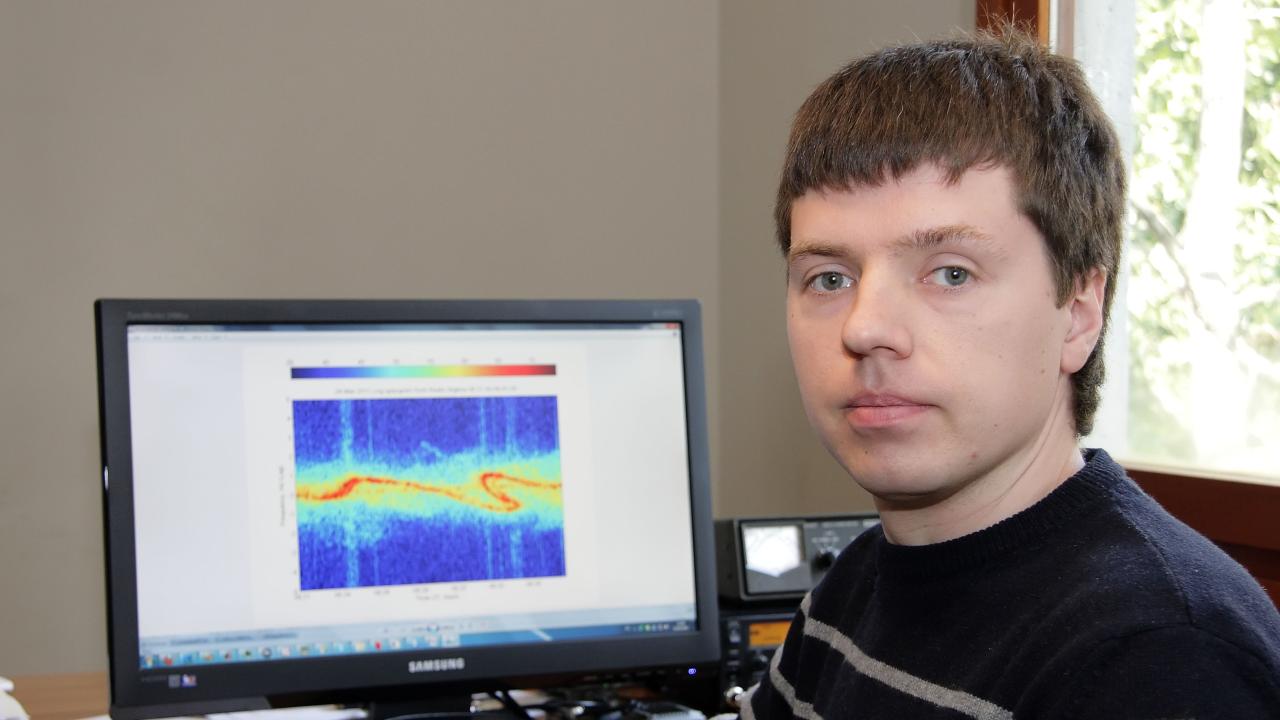
Scientists from the Department of Radiophysics of Geospace, Institute for Radio Astronomy, National Academy of Science, Ukraine, and ICTP's Aeronomy and Radio Propagation Laboratory (ARPL) have implemented and tested in Trieste, Italy, a unique remote sensing technique (developed at the Ukraine institute) for studying ionosphere disturbances.
Disturbances in the ionosphere (a layer of the upper atmosphere) affect radio wave propagation. This in turn leads to errors in satellite communication and navigation systems (e.g., global positioning systems or GPS).
Increasing dependance on and development of modern communication systems, such as GPS and satellite communication, have made accuracy in these systems imperative. This means that detailed studies of the ionosphere to estimate and eliminate errors it introduces have also become crucial. This is particularly true when using such systems at lower geomagnetic latitudes, where errors are substantially greater.
The remote sensing technique uses "signals of opportunity", or signals transmitted by broadcasting stations, to measure some of the ionosphere's physical properties. By measuring Doppler shift frequencies and angle of arrivals of signals reflected back from the ionosphere, scientists can reconstruct parameters of ionospheric disturbances.
As part of the testing, ICTP is hosting Ukrainian researcher Anton Kashcheyev, a CERES (Central European Initiative Research) fellow, to work on a simulator for radiopropagation in the ionospheric model NeQuick developed at the ARPL under the guidance of Sandro Radicella, head of ARPL.
Kashcheyev was part of the research team that first developed the new technique for Doppler shift measurements. He developed an experimental system for measuring and investigating ionospheric parameters.
At ICTP, he has been able to share his research with scientists from developing countries: Kashcheyev trained ARPL visitor Oyedola Oyeyemi, a scientist from University of Lagos in Nigeria (where Kashcheyev's system is now installed), to use this system, and research is being conducted for the first time at low latitudes in Africa.
The first results obtained from an experiment in Lagos strongly differ from those obtained in middle and high latitudes, indicating the influence of processes due to the peculiar conditions of the equatorial ionosphere at low latitudes. The future challenge is to extend the number of receiving points and introduce low power beacon transmitters to better control the experiment. The ICTP team is testing the new system in Italy before deployments in Africa.
















